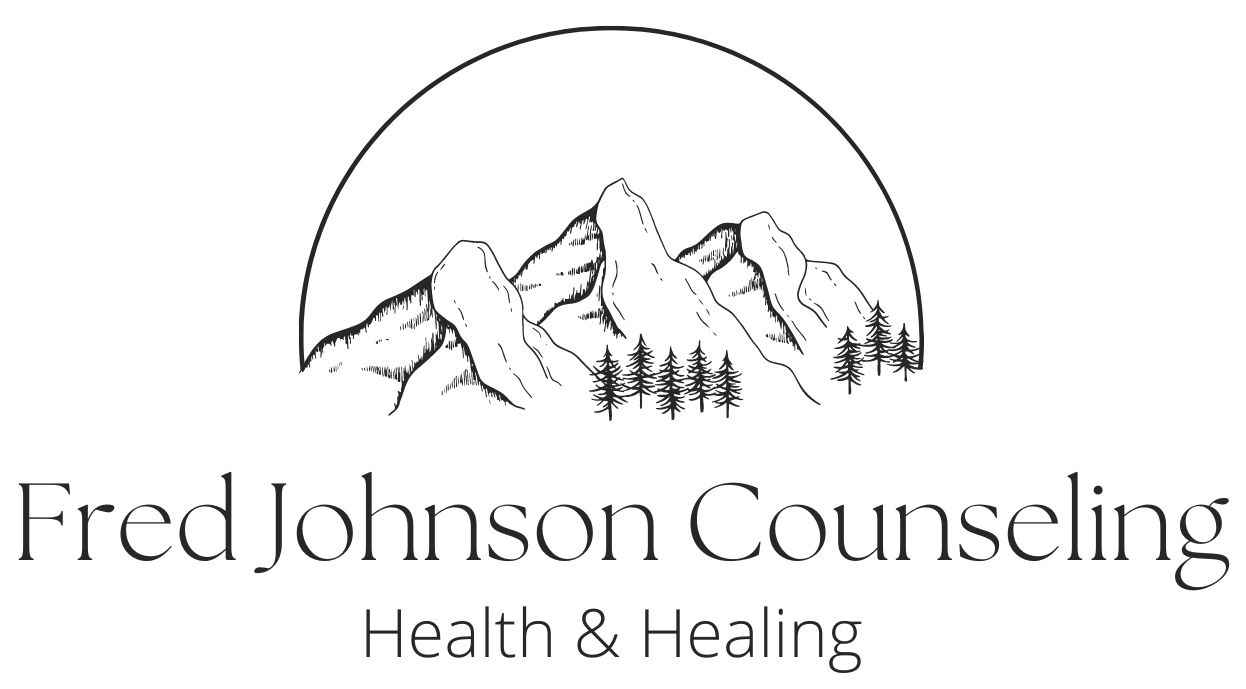Somewhere in the Middle
Fred Johnson • June 1, 2024
"The difference between a rock and hard place is the potential for change."
June is a transition month here in Tennessee. We go from beautiful spring weather with its own quirks and unpredictability, to the full heat and humidity of summer. In doing so, we also move from the first half of the year to the second half. This is a big change as it seems each year the time it takes to get from January to July grows progressively shorter. Changes in life can be hard. To be transparent, adjusting to the weather changing is about the easiest type of change we must deal with. Transitioning from one stage of life or adjusting to sudden loss, disappointment, new or possibly self-inflicted stressors are typically more challenging. If you find yourself in the middle of change and struggling to adjust, the tool Radical Acceptance might be of help to you!
Radical acceptance is a distress tolerance skill from Dialectical Behavioral therapy. Radical acceptance is intended to enable us to prevent the momentary pain we might be in, from becoming permeant suffering. My favorite way of framing this concept is, “To accept reality for what it is, while recognizing the need for change.” In other words, allowing ourselves to acknowledge, process, and feel the moment, while remaining aware and hopeful that we will be able to change at some point.
What radical acceptance is not: approval or condoning. It is simply accepting by acknowledging what is.
Here’s some examples of how this can sound in real life:
Situation: You didn’t get the promotion you had hoped for.
Normal response: “That is so unfair. I’ve worked harder than anyone and am way more dedicated.”
Radical Acceptance: “I’m saddened that I didn’t get this promotion but accept that the found someone who they thought was more qualified. I will continue to do my best.”Situation: A loved one is diagnosed with a terminal illness.
Normal response: “I can’t believe this. This shouldn’t be happening. They don’t deserve this.”
Radical acceptance: “This is heartbreaking and I’m not sure how to handle it. I accept that life is going to have to look different.”
This simple tool allows us to tolerate things that we might struggle to adjust to. It is very much a tool for being somewhere between where we wanted life to go and where it is heading. Allowing ourselves to acknowledge what is going on without resistance is freeing. If you are in the middle of something right now that is hard, feel free to try this tool to make the distress of that, more manageable.
If you find that practicing this is helpful, but want more help in the situation you’re in, I encourage you to reach out to a mental health counselor today.

Most of us don’t want to admit it, but the arrival of October signals the official start to the holiday season. Within the next 91 days, there will be everything from spooky lanterns, stuffed turkeys, and sales catalogues arriving in the mail or inbox on the regular. Parties to attend, events to support, and special “once a year” gatherings will all demand our focus and presence. One thing is for certain, If you’re of adult age with even a mild case of responsibility, you will begin to experience what I call, “Holiday Time-Slippage.” Holiday Time-Slippage is the phenomenon wherein the busier and faster our lives become during the holidays, the less time we have to enjoy the holidays. In trying to do it all, we miss all that we do. Ok, I’ll admit I made that up. I even googled it to see if it was a thing. It’s not. Perhaps I just made it a thing, but more likely it is just a fun play on words that ends with this blog post. In either case, I think it’s important to be mindful of the changing of the seasons and what those signals for many. The 16th century produced a carol of Welsh origin we now know as “Deck the Halls.” Within the lyrics, the phrase “‘Tis the season” has become a popular connotation of the holidays in general. Sometimes we use it as a greeting, coping phrase, or in an excusing manner, because after all, “’Tis the season, right?” What we miss in doing so, is the instructive reply the original lyric provides: “… to be jolly.” To experience a cheerful and happy time. In talking with people daily about their lives, I am reminded that not everyone enters this season with the hope of joy and jolly nature. Life can be hard. Holidays can bring triggers, those sharp painful reminders. The holiday seasons can be an extremely isolating time for many. We need the care of each other in these times. We need connection. We need people in our life who will laugh and love, who will share a moment. Maybe you are the person able to provide that for another. Maybe you’re the person who needs that. If I can remind and encourage you today, that in all your seasons upcoming, allow time to simply be jolly.

Each year, on the first day of August, I remind myself that we are closer to the end of the month than ever before. Each day after, as sweltering humid heat swarms us here in the south, I am reminded that it is now one day closer to the sweet relief of fall temperatures. I’m not sure how I would fair, if by chance, I believed the rampant heat waves of August would never leave. Thankfully, I know seasons come and seasons go. The dreaded drudgery of a hellacious August will soon be gone. The expounding beauty of fall, with leaves changing and cool breezes blowing, will soon arrive. Admittedly, this confession of seasonal distaste is a bit melodramatic. Yet, it serves as a practical example of what is known as “tolerable” stress and an adaptive coping response. Types of stress vary, but the three main categories are “good/positive”, “tolerable”, and “toxic” (1). These categories are not concrete or strictly defined by rules and circumstance necessarily. What is “good” stress for one person, may be “toxic” for another. Throughout our lives, the same stressors can change categories multiple times. Stress levels depend on the degree to which a person perceives control over a stressor or situation and whether they have support systems or resources in place to handle the stressor over their lifespan (2). A flat tire one day may be nothing other than a slight inconvenience. Yet on another day, it may represent all the uncontrollable forces keeping you from arriving on time to an important job interview. An easier way of saying all of this is, when we lose our sense of being (ability to control or make decisions) to a circumstance, we are a susceptible to toxic stress. This is where endurance comes in. I would love to say there is short and simple method to reduce and mitigate all toxic stress in our lives. Unfortunately, this just isn’t so. It doesn’t need to be. Because life, people, the world we live in, are all super complicated. What is important and hopeful: the effects of chronic/toxic stress in the brain and body are responsive to recovery and healing. Let’s talk about endurance as a helper for stress. Endurance, or the ability to withstand hardship or adversity, can be a simple, but effective tool to transition from toxic stress to tolerable stress. Enduring is a mindset of “thriving despite”. Thriving despite the terrible. Living beyond the hurt or difficulty. Healing to be able to accept good again. The difference in the stress types is significant. Remember that our perception plays a major role in which is which. Positive/good stress: normal life challenges such as receiving a promotion, learning a new skill, exercise, or having a child. Here we are allowed goals, enjoy success, and try new things. Choice remains in these. Tolerable stress is usually non-normative. Examples are loss of a loved one, serious illness, or natural disasters. There is a sense of unfairness in this. Often the choice to feel good is removed or feels wrong to do so. Our choice is questioned here. Toxic stress is typical adverse and inappropriate. Over time it can carry heavy physical and psychological consequences. All of life is darkened by this. Seeing good is tinted by what we have been through or currently in. We usually feel there is no choice in these. Abuse, intimate partner violence, Determining in our mind, to endure, withstand, and survive a critically difficult situation can move us from toxic stress to the tolerable type, then eventually the good type of stress. Living to allow good again. If ever there was a sentence that embodied the old phrase, “easier said than done” ---- that one was it. Tragically, it seems toxic stress only makes us good at surviving trauma or the terrible. It limits our ability to enjoy or even to see the beauty in a moment. The healing process allows us to be more human than before toxic stress skewed our view of the world. Talking with a counselor can be a critical part of healing. I hope that perhaps today in reading this, you’ve found a tool to help enduring despite what you’re up against. Notes: 1. https://center.uoregon.edu/StartingStrong/uploads/STARTINGSTRONG2016/HANDOUTS/KEY_49962/TypesofStress.pdf 2. https://www.ncbi.nlm.nih.gov/pmc/articles/PMC2864527/

